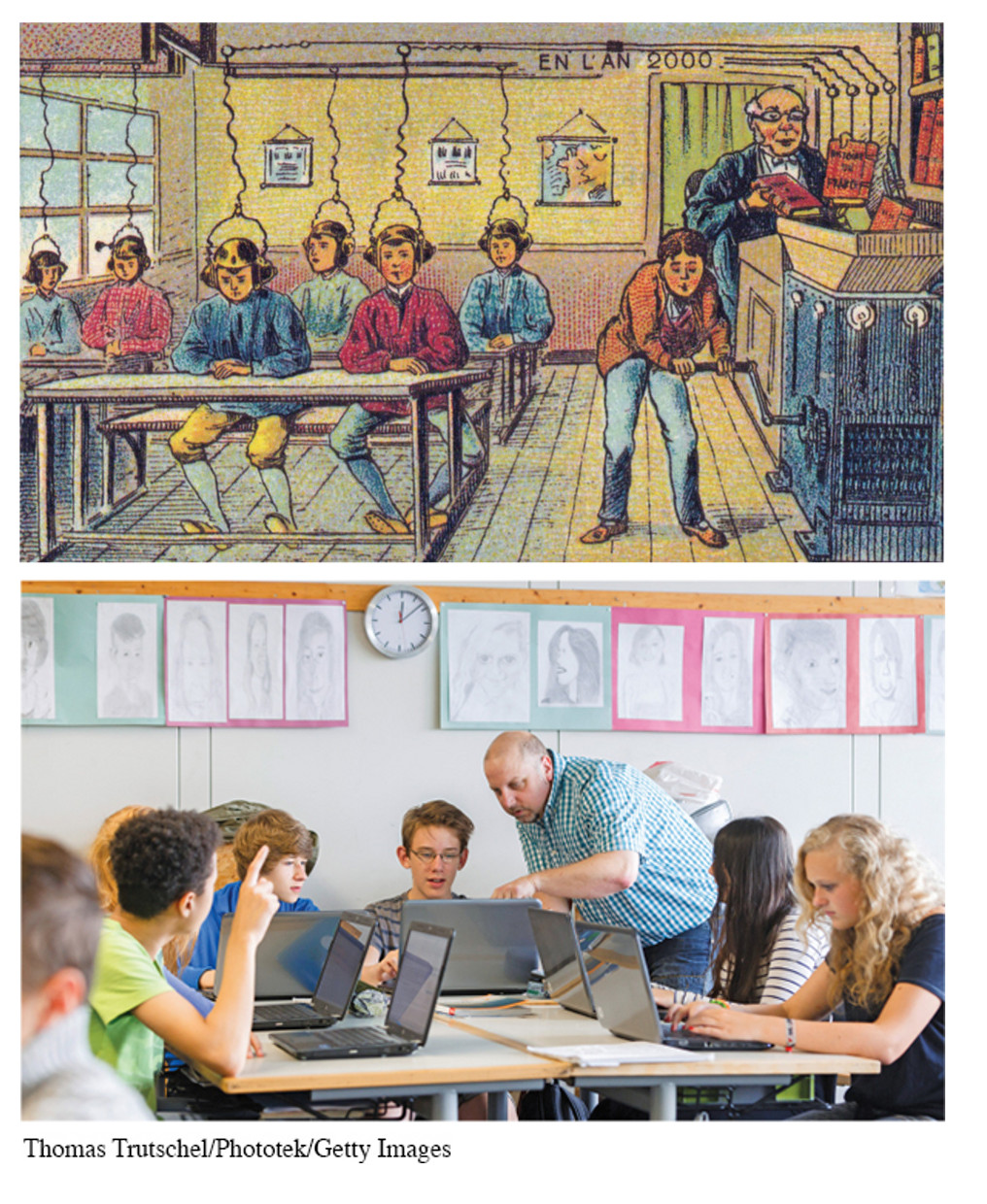5.12 CONVERSATION
THE INDIVIDUAL IN SCHOOL
At this point in your life, you have spent nearly ten years in school, which translates into roughly ten thousand hours. On most days, you spend more time doing school-


The top image, which was produced in 1910 in France, imagines what school might be like in the year 2000. The bottom image shows an actual twenty-
There are some who believe that in addition to teaching students the skills and knowledge they need to be successful later in life, school is supposed to indoctrinate students to become model citizens by teaching them the behaviors, attitudes, and beliefs of the dominant social and political culture. Consider the following statement about the purpose of school from Henry Ward Beecher, a popular clergyman of the mid-
The common schools are the stomachs of the country in which all people that come to us are assimilated within a generation. When a lion eats an ox, the lion does not become an ox but the ox becomes a lion.
In other words, a main purpose of school is to assimilate those who are different so that everyone becomes the same “lion.” Contrast Beecher with this passage from Democracy and Education, written by education reformer John Dewey in 1916:
How one person’s abilities compare in quantity with those of another is none of the teacher’s business. It is irrelevant to his work. What is required is that every individual shall have opportunities to employ his own powers in activities that have meaning. Mind, individual method, originality (these are convertible terms) signify the quality of purposive or directed action.
It is clear from this passage that Dewey does not think that school should be about assimilation, but rather about individuals having the opportunity to develop their own skills and knowledge as determined by their unique needs and interests.
In this Conversation, you will have an opportunity to think about the role of an individual’s identity within the larger community of school. You will read mostly nonfiction pieces about the pressures of popularity in high school, the positive and negative effects that teachers have, and the arguments for and against public schooling. And, having logged so many hours as a part of the school community yourself, at the end of the Conversation, you will have an opportunity to add your own expert voice to the debate.